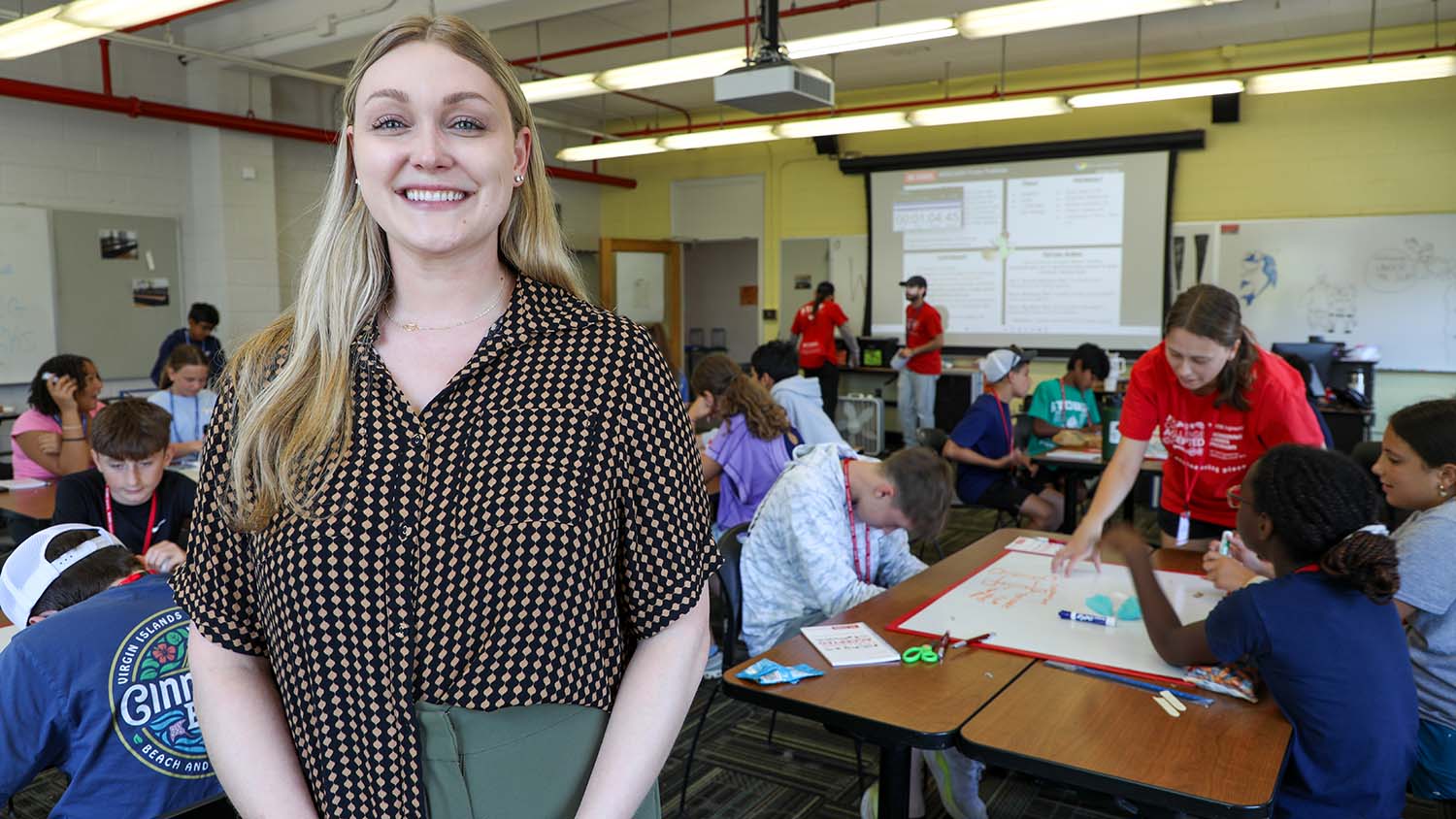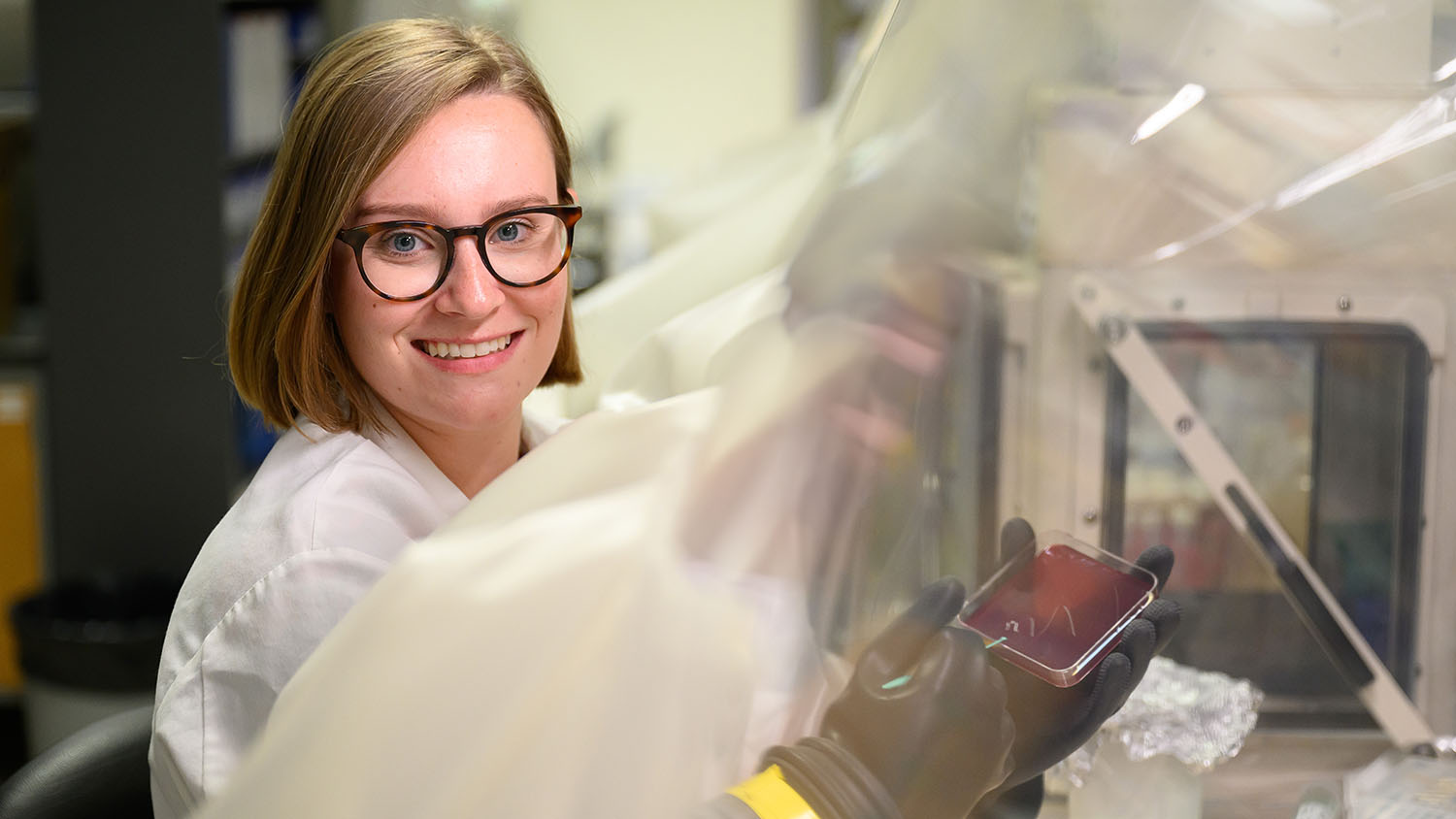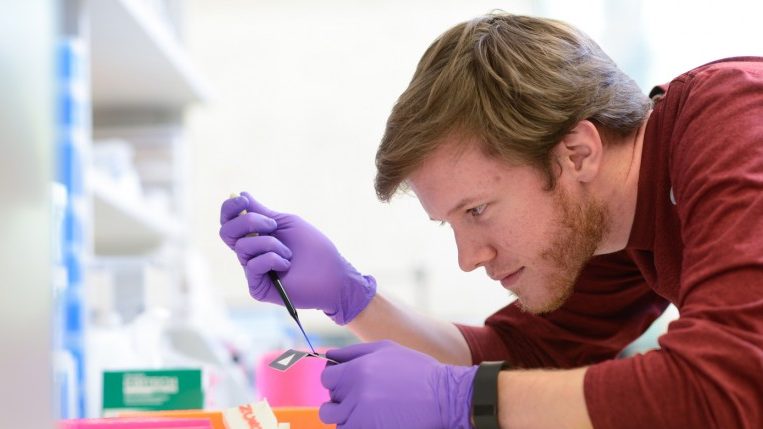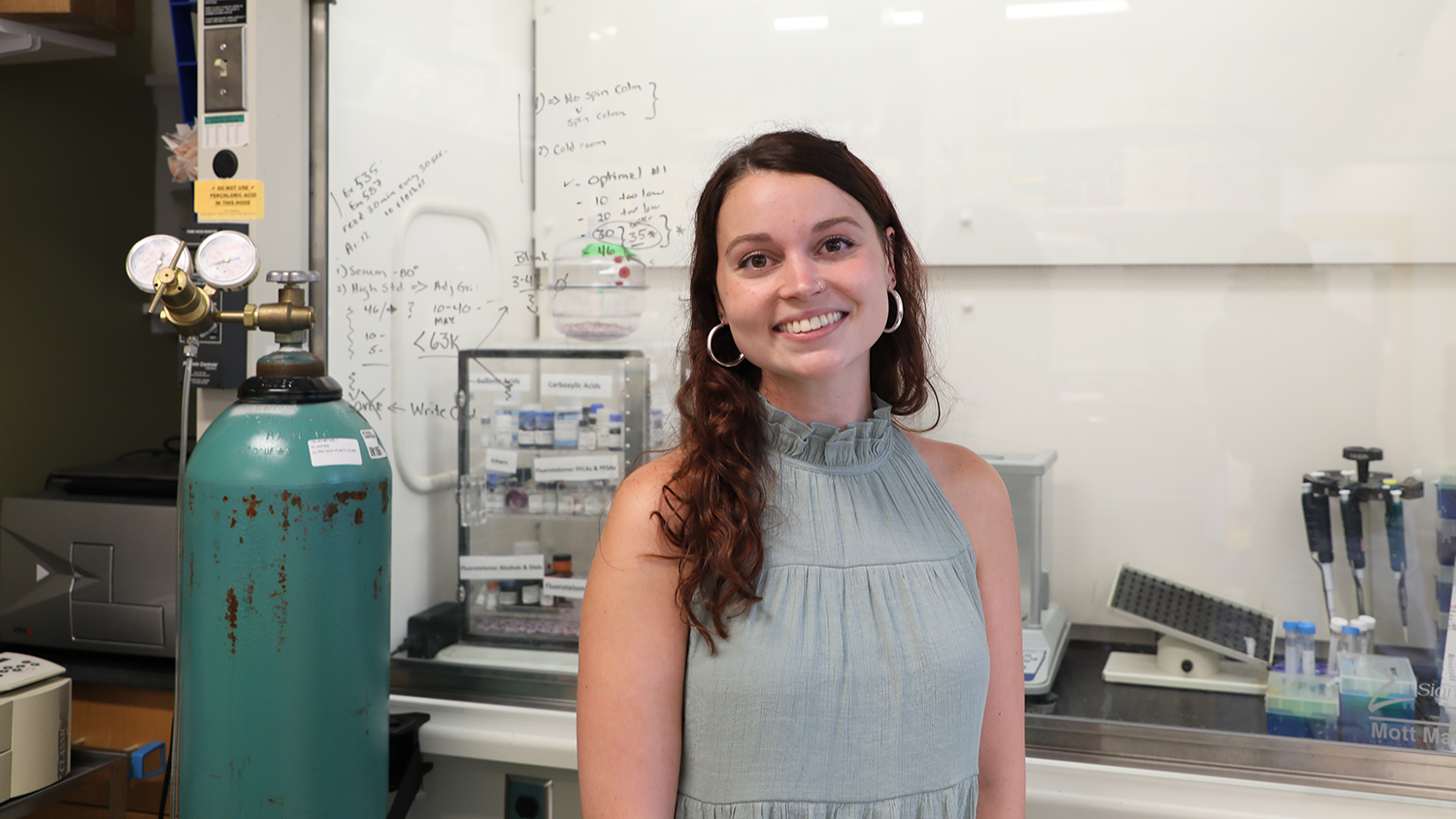Madeline Stallard, a native of Pound, Virginia, grew up experiencing the challenges of a rural community, which fueled her passion for science and education. She earned a bachelor’s degree in biology from the University of Virginia’s College at Wise and began her career as a research associate in a research and development laboratory. After facing layoffs due to limited local opportunities, she discovered a passion for education while substitute teaching, which led her to pursue a master’s degree in teaching at the University of the Cumberlands. Madeline taught high school science for three years before beginning her Ph.D. in Science Education at NC State University in 2021. Her research focuses on improving science education and professional development for educators, particularly in underserved rural communities. Madeline recently graduated in May 2025 and will be a postdoctoral research scholar with Dr. Gail Jones at the Friday Institute at NC State this fall.
Tell us about your journey to graduate school and what led you to NC State.
Growing up in the Appalachian Mountains of Pound, Virginia, I experienced firsthand the challenges and limited opportunities that often accompany life in a rural community. Yet, from an early age, I was drawn to science; a passion that led me to pursue a bachelor’s degree in biology from the University of Virginia’s College at Wise. After graduation, I worked as a Research Associate in a research and development laboratory, where I contributed to scientific advancements. However, when the lab lost a major client, I was laid off and confronted with the harsh reality of limited career opportunities in my rural hometown.
During this uncertain period, I began substitute teaching. What started as a temporary job quickly became a calling. I discovered a deep passion for education and a desire to make a lasting impact on students’ lives. This realization inspired me to earn a master’s degree in teaching from The University of the Cumberlands and begin teaching high school science. Over the next three years, I worked to foster curiosity and critical thinking in my students, many of whom came from backgrounds similar to my own.
My journey to graduate school and ultimately to NC State was driven by a commitment to improving science education, particularly in underserved and rural communities. I chose NC State’s Ph.D. program in Science Education because of its strong emphasis on research, innovation, and equity in education. I am particularly passionate about enhancing professional development opportunities for science educators and creating engaging, meaningful science learning experiences for students in communities like the one where I grew up. My academic and professional path reflects both my roots and my aspirations: to bridge gaps in educational access and inspire the next generation of rural scientists and educators.
Tell us about your research and/or teaching experience.
Throughout my academic and professional journey, I’ve developed a robust background in both research and teaching, shaped by diverse experiences across K–12 education, higher education, and interdisciplinary research settings.
My research experience began during my doctoral studies in Science Education at NC State, where I served as a Graduate Research Assistant at the Friday Institute for Educational Innovation under Dr. Gail Jones. In this role, I’ve led project management for multiple science education research studies, contributing to all stages of the research process, from proposal development to data collection, analysis (both qualitative and quantitative), and dissemination. I’ve co-authored conference proposals, research publications, and IRB submissions, strengthening my skills in academic writing and collaborative inquiry. Additionally, I am a STEPS Scholar with the Science and Technologies for Phosphorus Sustainability (STEPS) Center, where I contribute to an interdisciplinary team investigating phosphorus reclamation, an experience that has broadened my understanding of convergence research and the role of science in addressing global challenges.
My teaching experience spans from early classroom roles to teacher preparation and STEM program coordination. I began my formal teaching career as a high school science teacher in Wise County, Virginia, where I taught Biology, Anatomy and Physiology, and Earth and Environmental Science. I was committed to fostering curiosity and engagement through hands-on learning, differentiating instruction to meet students’ diverse needs, and supporting their academic and social development.
Since entering graduate school, I’ve expanded my role in education through higher ed instruction and STEM outreach. As a Graduate Teaching Assistant in STEM Education at NC State, I supported both undergraduate and master’s level science teaching courses, where I led lessons on research-based instructional strategies, evaluated student teaching performance, and provided individualized mentorship. I also served as a University Supervisor for student teachers, observing their classroom instruction, providing feedback, and helping bridge university coursework with real-world teaching practice.
Beyond the university classroom, I’ve contributed to K–12 STEM outreach through my current work as Day Camp Coordinator for the NC State College of Engineering’s Summer Camps. In this role, I manage program logistics, train staff, and help design engaging engineering experiences for youth. This work has given me additional insight into informal STEM education and the value of high-quality enrichment opportunities, particularly for students from underserved backgrounds.
How has the Graduate School and/or NC State helped you with your professional development?
NC State has played a pivotal role in my professional development, providing me with a breadth of opportunities to grow as both a researcher and educator. Through my doctoral program in Science Education, I’ve gained valuable experience in designing and conducting educational research, particularly as a Graduate Research Assistant at the Friday Institute for Educational Innovation. Working alongside Dr. Gail Jones and other faculty, I’ve sharpened my skills in project management, data analysis, academic writing, and grant preparation; experiences that have prepared me for a future in both research and leadership in science education.
The university has also supported my development as an educator. Serving as a Graduate Teaching Assistant and later as a University Supervisor allowed me to mentor future science teachers, deliver instruction in methods courses, and engage in meaningful dialogue about best practices in the classroom. These experiences deepened my understanding of pedagogy and teacher preparation, further reinforcing my commitment to supporting educators, especially those in rural and underserved communities.
Additionally, NC State has connected me with interdisciplinary research through the STEPS Center, where I work alongside scientists, engineers, and educators addressing global sustainability challenges. This cross-disciplinary collaboration has expanded my professional network and broadened my perspective on how science education can intersect with real-world problem solving.
Finally, the Graduate School and NC State’s College of Engineering have offered valuable leadership and outreach opportunities, particularly through my work with summer STEM camps. These roles have enhanced my organizational and supervisory skills while reaffirming my dedication to equitable access in STEM education.
What advice do you have for new or current graduate students?
My advice to new and current graduate students is to embrace flexibility, seek out mentorship, and remain rooted in your “why.”
Graduate school can be both exciting and overwhelming, especially when navigating research, coursework, and teaching responsibilities. One of the most important lessons I’ve learned is the value of being open to unexpected opportunities. My path shifted significantly (from working in a research lab to discovering a passion for teaching), which ultimately led me to pursue a Ph.D. in Science Education. Being willing to explore new roles, such as serving as a university supervisor, coordinating STEM camps, or joining interdisciplinary research teams like the STEPS Center, helped me grow in ways I never anticipated.
I also encourage students to actively seek mentorship and collaboration. Some of my most meaningful growth has come from working closely with faculty and peers at the Friday Institute and within NC State’s STEM Education program. Don’t hesitate to ask questions, share ideas, and get involved. These relationships can support both your professional development and your personal well-being.
Finally, always stay connected to your purpose. Whether you’re driven by a passion for equity in education, a love of science, or the desire to make a difference in your community, keeping that motivation in focus can sustain you through the challenges and uncertainties of graduate school. For me, remembering my rural roots and commitment to supporting underserved students has grounded and guided every step of my journey.
What are your plans after graduation?
After graduation, I’m excited to continue my journey at NC State as a postdoctoral scholar, working under the mentorship of Dr. Gail Jones. I’ve accepted a post-doc position that allows me to stay deeply connected to both of my professional passions: interdisciplinary research and science education. I’ll be serving as a postdoctoral researcher through the STEPS Center, continuing to explore sustainability challenges related to phosphorus, and through the College of Education, where I’ll also be teaching Environmental Education this fall.
What does being an NC State graduate student mean to you?
Being an NC State graduate student means being part of a community that values innovation, collaboration, and meaningful impact. For me, it represents a powerful opportunity to grow not just as a researcher and educator but as a leader committed to improving science education.
As a Ph.D. student in Science Education, I’ve been able to engage in cutting-edge research at the Friday Institute, contribute to interdisciplinary projects like the STEPS Center, and support the next generation of science teachers through teaching and mentorship. These experiences have not only sharpened my academic and professional skills but have also deepened my sense of purpose and responsibility.
NC State has given me the space to explore my passions and build a career rooted in service, equity, and evidence-based practice. Being part of this institution means I am constantly challenged to think critically, collaborate across disciplines, and seek out solutions that can make a real difference in education and society. It’s a place where my voice and experiences are valued and help shape the work I do.
In short, being an NC State graduate student means being empowered to lead with purpose, to advocate for change, and to contribute meaningfully to the future of science education.
Fun fact about yourself.
I’m an amateur ukulele player.
- Categories:



